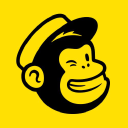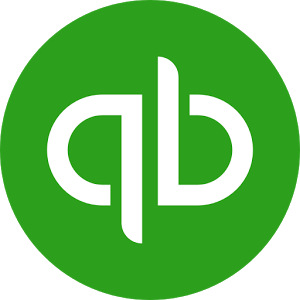How I Started A Wildly Successful Food Tour Business
Hello! Who are you and what business did you start?
Hi, I’m Jessica Baumgart, and in 2017 I founded Delicious Denver Food Tours to connect Denver locals and visitors to my city’s amazing food scene.
Many people don’t know what a food tour is, although they are the fastest growing sector in tourism. Food tours are walking (sometimes driving or biking) city tours that feature local restaurants, dishes and chefs.

I started with our Downtown Denver Food Tour, which is a three-hour walking tour through the heart of the Mile High City with stops at six local restaurants. At each restaurant stop, guests enjoy a curated tasting, and we talk about the chefs, owners and people behind the food scene here in Denver.
From the Downtown Food Tour, I expanded into offering our Cocktails & Tastes Tour (for those craft cocktail lovers) and just recently launched a Food + Beer Tour to combine delicious local dishes with locally-brewed craft beers.

When I first launched the business, I was guiding every food tour myself. By month three, I had broken even and was turning a profit. This was also when I started hiring my first tour guide. Now 1.5 years into running the business, I manage a team of tour guides, and the business is producing $20,000/month in revenue.
What's your backstory and how did you come up with the idea?
My background is in marketing and communications, which has helped me immensely as I grow my business. I was working a standard 9-5 job and feeling pretty unsatisfied when my then boyfriend (now husband) and I got the idea to quit and travel for a year.
On that trip around the world, I started to question why I was working in a career that was making me unhappy and resolved to start really listening to what my passions were.
We planned and saved over the course of two years (and got married in the meantime). Right after the wedding, we sold everything we owned, quit our jobs and went backpacking through 25 countries on a year-long trip around the world.

On that trip, I started to question why I was working in a career that was making me unhappy and resolved to start really listening to what my passions were. I identified pretty quickly that travel and food are at the top of that list, so my husband and I signed up to work at a cooking school in Italy for the summer, and we started taking food tours in each city we traveled to.
When we returned to the states, we settled in Denver, and I began teaching private cooking classes and returning to Italy once a year to run a week-long Cooking Vacation with the chef I worked with there.

From there, launching a food tour seemed like a fun next step. At the time, I thought it would be a small, part-time gig that could provide some side income. I never imagined it would turn into the full-fledged business that it is today!
Take us through the process of designing the food tour and launching the business.
Launching the food tour initially meant a lot of relationship building with local chefs and restaurant owners. I had to identify which restaurants I wanted to feature on my first tour downtown, and from there I tasted everything to narrow down what I thought we should serve to tour guests.
I approached owners and chefs and made my pitch, which in the beginning was a pretty casual conversation (and now includes a more formal presentation with data). The primary sell to the restaurants was that I wanted to bring guests in at a time of day that was traditionally quiet for them, pay for the food we’d serve on the tours and promote them to a wider audience that would likely return after the tour.
For the most part, restaurant owners and chefs were receptive to the idea, although a few of them has had previous experiences with failed food tours and were skeptical that I would ever bring them new business. Now over a year later, I hear them say things like, “Yeah when you first came in and asked to partner with us, I thought surrrrre.”
The process of signing on new restaurants took several months. It was all about tracking down the right person to actually make that decision (usually the owner, sometimes the GM) and getting in front of them, which can take time. I did a lot of dropping into restaurants to see who I could meet and try to identify this person. I often found that managers are the least receptive because partnering with a food tour does mean extra work for them. As they don’t profit share in the restaurant, the benefit of repeat customers isn’t always appealing, so they tend to see a lot of the downsides and few of the upsides. Once I really started getting to the owners, though, things were easier.
All told, I approached close to 10 restaurants to settle on the 7 I currently work with, so I definitely got some no’s or just unreturned phone calls and e-mails.
I’ve learned a lot through trial by fire. As I run into new problems, I work to find solutions. I think it’s most important for entrepreneurs to just keep taking baby steps. Eventually, they’ll find that they’ve made huge progress.
Once I had 6-7 restaurants committed, I built a pretty simple website with Squarespace and got set up with an online ticketing system.

My start up costs were about $3,000, which included commercial insurance (in case a guest falls or has an allergic reaction to a tasting on the tour), building and hosting a website, filing my LLC, hiring a photographer to capture high-resolution photos of a tour and “research” (i.e. eating a lot of good food). I also hosted a number of friends and family members on early tours to make sure the product was perfect and to get feedback.
From there I started marketing the tour every way I knew how. I got my first booking (a solo guest) three days after my website went live. I thought it might have been a friend playing a prank, but it was a real guest!
Initially, I led a lot of two or four-person tours. As I got more practice, I added more information to the tour and strengthened my relationships with the restaurants featured. With time came a number of positive reviews, which shot me to the #1 spot on TripAdvisor for all tours in Denver and the #1 spot for food and drink experiences. These review platforms (Yelp, Google Reviews, Viator) all contribute additional business.
I was pretty scrappy when launching and used my own personal funds to get the business going. Luckily, food tours are low in terms of overhead, and they can be pretty lean businesses.
My “launch” was me alone at my kitchen table setting my website to live. I had no expectations for the business being successful, so it didn’t occur to me at the time to make a big fuss. I think I posted about it on Facebook and then prayed that I might get a booking.

Since launch, what has worked to attract and retain customers?
My business is a lot of acquiring new customers as guests don’t often take the same tour twice. As a result, I have a marketing plan that involves listing and selling tours in a number of places in addition to my website (TripAdvisor, Expedia, Airbnb Experience, etc.). I imagine sales as a number of small funnels, all bringing new guests in the through different doors.
For these third-party sites, I have a really limited scope on what I can do to optimize outside of asking happy guests to share their experiences with positive reviews. In the end, it really comes down to how satisfied your customers are and how receptive they are to sharing that experience with a five star review. We hit the #1 ranking on TripAdvisor for tours in Denver and food and drink experiences in Denver, and I’ve definitely seen an uptick in our inbound customers from that coveted spot. We hear guests all the time say they read our reviews before booking and booked because we were the #1 ranked tour.
I imagine that ranking will slip as I understand the TripAdvisor algorithm to really value new businesses. So it’s easy to climb quickly and get into that #1 spot for a period of time, but eventually (even if your reviews remain strong), most businesses slip to the 3rd or 4th spot over time as new businesses climb to the top.
As my web traffic has increased over time, I also focus a lot on SEO and making my website as easy to navigate as possible. I’m pretty clear that my customer has a limited attention span, and if he/she can’t find the necessary information to book my tour in a matter of seconds on my website, I’ll lose him/her to my competitor.
In terms of SEO, I focus on site speed, accessibility and making the website easy to find across a lot of platforms. I worked my way through this checklistand try to regularly create keyword-optimized blog posts around things to do in Denver, team building events in Denver (which get me private corporate tours), bachelorette ideas, etc.
I spend marketing dollars on Adwords and a partnership with my local Convention and Visitors’ Bureau, which is responsible for bringing new visitors to Denver each year.
I also focus a lot of public relations and am always pitching the tours to food bloggers and journalists. We offer free tours to those looking to cover the experiences, which ultimately helps exposure and our SEO rankings.

In an effort to retain my existing customers, I launched two new tours so I can cross-sell those experiences and keep guests coming back.
How are you doing today and what does the future look like?
Our focus is primarily on growth. That means hiring new staff, launching new tours in different neighborhoods around the city and maximizing marketing efforts to fill those tours with paying guests.
Our margins remain at about 40%, but we can improve those by reducing food costs, eliminating wasteful spending within the process or of course playing with pricing structures.
Our focus continues to be on tightening our ad spends and understanding what is working and what is not. Luckily in digital, these are things we can constantly test and learn from.
Day to day, as a business owner I always struggle with working on the business and in the business. Those moment-to-moment issues can suck up large amounts of time, and I find that long-term projects (like honing our SEO strategies and content production) can get pushed.
Through starting the business, have you learned anything particularly helpful or advantageous?
I’ve learned a lot through trial by fire. When I do interviews, I think people expect that you have all of the answers because you run a profitable business, but my education has been incremental. As I run into new problems, I work to find solutions. I think it’s mostly important for entrepreneurs to just keep taking baby steps. Eventually, they’ll find that they’ve made huge progress.
In my first month of business, I booked a large private corporate tour. On the phone, the client asked me to send over my contract by the end of day. I didn’t have a contract and literally had to google a template, but I made it up, sent it over, and the client booked right away.
Like all businesses, some of my success has been from hard work and a lot has been luck. In tourism, we’re beholden to the ebb and flow of seasonality, so that’s something we have to be aware of (and learn to plan for). We’ve been lucky to be working in a space that’s growing rapidly, so I often feel like we’re riding the food tour wave in terms of trending tourism sectors.
My major advice is always to surround yourself with people who know more than you. Running a business can be isolating, so I purposefully have created groups where I can ask questions and learn. I host a monthly call with other food tour CEOs across the country, and this has been pivotal in providing a space where peers can learn from each other.
What platform/tools do you use for your business?
I use Squarespace, EZTix (an integrated ticketing system designed specifically for food tours), Google Analytics, Adwords, MailChimp (email marketing), and Oh Dear! (for web monitoring).
For bookkeeping and invoicing, I use Quickbooks, Waveapps, and MileIQ (for mileage tracking).
Social media accounts I manually manage, or I use HootSuite for scheduling and to maintain a social media schedule.
What have been the most influential books, podcasts, or other resources?
I loved the book $100 Startup because it inspired me to get started. I used to think that launching a business meant the traditional business plan and bank loan, but that book opened my eyes to the world of microbusinesses.
I also regularly listen to Chris Guillebeau’s podcast, Side Hustle School (we were lucky enough to be featured in an episode!), and I love the podcast How I Built This.
In person, I belong to Women Who Startup, a local organization of female entrepreneurs that meets monthly, and I have a monthly call with CEOs/founders of food tours in other areas of the country.
Advice for other entrepreneurs who want to get started or are just starting out?
I often see young entrepreneurs hold back because they don’t have all of the answers. I always try to impress upon them how little I knew when I started. You just have to take the first step and then the next.
In my first month of business, I booked a large private corporate tour. On the phone, the client asked me to send over my contract by the end of day. I didn’t have a contract and literally had to google a template, but I made it up, sent it over, and the client booked right away.
Additionally, I think it’s important that you’re willing to do every aspect of the business. I find that entrepreneurs are excited about one piece of the pie and don’t realize up front that launching a business means doing it all, even the unpleasant parts.
People love the idea of starting a food tour because they think it’s just eating in restaurants and chatting with chefs. I don’t think they realize that large portions of my day include boring tasks like pouring over commercial liability contracts, re-sizing and compressing web images, scheduling (and re-scheduling guides) and cross-checking receipts.
Are you looking to hire for certain positions right now?
I’m not currently hiring but soon will be looking for a part-time assistant to help with data entry, restaurant reservations and confirmations, and some customer service.
Where can we go to learn more?
- www.deliciousdenverfoodtours.com
- TripAdvisor reviews
- Facebook: https://www.facebook.com/DeliciousDenverFoodTours/
- Instagram: https://www.instagram.com/deliciousdenverfoodtours/
- Pinterest: https://www.pinterest.com/deliciousdenver/
- Twitter: https://twitter.com/DenverFoodTours
If you have any questions or comments, drop a comment below!

Download the report and join our email newsletter packed with business ideas and money-making opportunities, backed by real-life case studies.

Download the report and join our email newsletter packed with business ideas and money-making opportunities, backed by real-life case studies.

Download the report and join our email newsletter packed with business ideas and money-making opportunities, backed by real-life case studies.

Download the report and join our email newsletter packed with business ideas and money-making opportunities, backed by real-life case studies.

Download the report and join our email newsletter packed with business ideas and money-making opportunities, backed by real-life case studies.

Download the report and join our email newsletter packed with business ideas and money-making opportunities, backed by real-life case studies.

Download the report and join our email newsletter packed with business ideas and money-making opportunities, backed by real-life case studies.

Download the report and join our email newsletter packed with business ideas and money-making opportunities, backed by real-life case studies.












